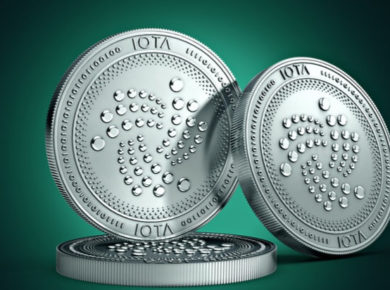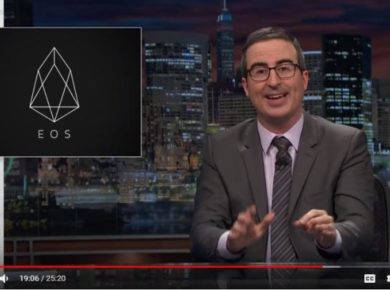There are eight crypto funds with more than USD 250 million in assets under management (AUM), according to the newly-launched Dove Mountain Data, a live database of all funds deploying capital into crypto.
This free, live database was created by Regan Bozman, Director Of Business Operations at CoinList, a token listing platform backed by Twitter CEO Jack Dorsey.
In a blog post this week, Bozman said that the goal of this project is “to make fundraising in the space more transparent.” He argued that “for an industry that hypes openness, fundraising remains an opaque process and many funds choose to operate under the radar. There are valid reasons for funds doing so, but nonetheless, it makes entrepreneurs’ lives harder.”
Per Dove Mountain Data, at this point in time, there are eight companies in the upper tier with USD 250 million or more in crypto funds, which publicly announced crypto investments in the past 12 months. Most of these are in the US. Bozman told Our that the first three stand out from the crowd, given that the rest sit just at that USD 250 million AUM border.
1. a16z Crypto
Location: US
Year founded: 2018
AUM: USD 825 million
Portfolio companies: Anchorage, Celo, AVA Labs, CryptoKitties, MakerDAO, and 21 others.
Learn more: General Partner of a16z Crypto vs. Nobel Laureate
2. Polychain Capital
Location: US
Year: 2016
AUM: USD 600 million
Portfolio companies: CoinList, Coinbase, dYdX, Compound, and 22 others.
3. Paradigm
Location: US
Year: 2018
AUM: USD 250 million
Portfolio companies: Tagomi, Numerai, Uniswap, Keep, and 5 others.
4. Blockchain Capital
Location: US
Year: 2013
AUM: USD 250 million
Portfolio companies: Securitize, Bison Trails, Kraken, Ripple, and 45 others.
Learn more: 11 ‘Bold’ Crypto Predictions for 2020 by Blockchain Capital
5. Digital Currency Group
Location: US
Year: 2015
AUM: USD 250 million
Portfolio companies: Chainalysis, bitFlyer, BitPay, Luno, and 86 others.
Learn more: The Bitcoin debate: Peter Schiff vs. Barry Silbert
6. Galaxy Digital Capital Management
Location: US
Year: 2017
AUM: USD 250 million
Portfolio companies: Bakkt, Bison Trails, BitGo, and BlockFi.
7. Hashed
Location: Asia
Year: 2017
AUM: USD 250 million
Portfolio companies: Terra, Oasis Labs, Kyber, NuCypher, and 3 others.
Learn more: Hashed CEO on New Trend In Crypto Startup Investing: Money Wises Up
8. Pantera
Location: US
Year: 2013
AUM: USD 250 million
Portfolio companies: Brave, Bakkt, Abra, Circle, and 50 others.
Learn more: ‘Serial Killer’ Bitcoin to Explode This Year – Pantera’s Morehead
Binance Labs is also on this list per Dove Mountain Data, with portfolio companies Oasis Labs, Terra, and MobileCoin – but Bozman told Our that they’re actually below this level and that the database needs an adjustment here.
Victims and victors
“The crypto bear market of 2018-2019 quietly claimed a number of victims,” Bozman wrote in his post, these generally being “upstart funds raised on 2017 ICO [initial coin offering] gains that simply couldn’t deliver returns over time.” Also, March 2020 claimed victims of its own, such as Adaptive Capital and Cambrial Capital. Other rising, major funding sources got sidetracked by their internal issues, failed projects, and/or wrong decisions, such as Bitmain. “Other funds have been brought down by sheer incompetence,” Bozman said.
On the other side are the funds that have grown since the 2017–2018 bull market. The author highlights a16z Crypto, Paradigm, and Polychain Capital as the only US-based crypto-focused investors with flagship funds larger than USD 500 million, as he told Our. These have also led many of the largest Series A and B rounds over the past two years, Bozman wrote, giving as examples Argent (USD 12M), Amber (USD 28M), Celo (USD 25M), Compound (USD 25M), Dfinity (USD 102M), Oasis Labs (USD 45M), and StarkWare (USD 30M).
Funds now and beyond 2020
The latest crypto funds, those launched in 2019 or later, are smaller than their ‘elders’ (c. <USD 50 million, compared to the 2017 vintage funds’ USD 100 million), and they’re more interested in investing in decentralized finance (DeFi). This comes as “DeFi is exploding as an investable asset class.”
Round sizes are shrinking, while projects often raise less pre-launch, but “a number of the top DeFi projects today have achieved significant traction while raising less than [USD 5 million] in venture funding,” wrote Bozman.
Venture capital (VC) interest in crypto has lessened, according to Bozman, possibly because “the asset class remains fairly nascent and has perhaps evolved slower than investors hoped.”
All this said, “there is a real risk of a late-stage capital crunch if venture capitalists continue to shy away from the space and only a small number of crypto funds can lead large late-stage rounds,” concluded Bozman. “The next eighteen months will be hugely consequential for the industry and whether its fundraising market continues to evolve.”
__
Learn more:
Hundreds of Institutional Investors Send a Good Sign to Bitcoin & Co











